Must Not Have Or Must Have Not
No s Modal verbs don’t add s after he/she/it He must come with us (NOT He must comes with us.

Must not have or must have not. Must & Have To / Has To Complete the sentences with mustn't or don't have to / need to. Vital A warm coat is a must in this weather Not to be. Since That is a singular Modal verbs ( may, might, must, can, could, etc) can only be followed by a plain form (bare infinitive) of the verb.
In Britain, people don’t have to carry a passport with them (= People are not obliged to carry one) Nowadays pupils do not have to learn Latin at school (= They are not obliged to learn it) 5 Questions In questions we usually use do/does have to (not must) to ask if something is obligatory or important. The negative form, "mustn't" ("must not"), means that you are obliged or recommended not to do something Form "must" or "mustn't" ("must not") the infinitive of the verb (without "to") Example Must I you he / she / it we they go?. Re must not have been?.
Synonym for Can't Must not is when you are able but make yourself not no because of another issue my friend invited me to the party, but I can't go because I'll be out of town my friend invited me to the party, but I mustn't go because my mom wouldn't be happy"Cannot" or "can't" is used talk about what someone is not able to do "I can't lift that box because it's too. Must/mustn’t, have to/don’t have to – form Download fullsize image from must/mustn’t Use must infinitive without to Must is a modal verb, and modal verbs are followed by an infinitive without to I must go to the doctor (NOT I must to go to the doctor;. No s Modal verbs don’t add s after he/she/it He must come with us (NOT He must comes with us.
Musthave definition 1 A musthave object is something that many people want to own 2 A musthave object is Learn more. No, you didn't get it properly As Jim said, there is no way to use any verb except for be in the construction with there There is/should be/can be a car If you are striving for using must and have you can say There must have been an accident The shatters of glass are all over the place. Must/mustn’t, have to/don’t have to – form Download fullsize image from must/mustn’t Use must infinitive without to Must is a modal verb, and modal verbs are followed by an infinitive without to I must go to the doctor (NOT I must to go to the doctor;.
Must not and Don’t Have To Must not and don’t have to don’t mean the same, unfortunately Must not means that you should not do something It’s not a good idea or it’s forbidden Not have to means it is not necessary Here are some examples You must not take photographs in the museum, as the flash harms the paintings. Show activity on this post The second one is correct You mustn't have done anything to fix it Not sure if there is a general rule, but at least with the construction "must have done", if you want to negate it, the "not" comes after the "must". We use "must have" in the positive form only we believe that the action definitely happened We use "can't have" in the negative form only we believe that the action definitely did not happen (the opposite of "must have").
"Don't have to," "don't need to" and "mustn't" have very different meanings "Don't have to" is used to express that something is not required "Don't need to" also expresses that a particular action is not necessary "Mustn't" is used to express that something is prohibited She doesn't have to get up early on Saturdays. Must English Grammar Today a reference to written and spoken English grammar and usage Cambridge Dictionary. Must not prohibition (it is not allowed) need not option (it is not necessary) Soccer Rules Decide whether to use 'must not' or 'need not' The teams have more than 11 players on the field during a match But there even be 11 players playing for.
Have to, don't have to, must, mustn't (1) Type the correct answer into the box Use contractions where possible Youhave a passport if you want to travel abroad Youarrive late Youstand on the plane There are seats for everyone. EnglishClub Learn English Grammar Verbs Modals have to, must have to, must Have to is NOT an auxiliary verb (it uses the verb have as a main verb) We include have to here for convenience Must is a modal auxiliary verb In this lesson we look at have to, must and must not, followed by a quiz to check your understanding have to for objective obligation. ‘Must’ is a modal verb, which means it does not show an action like most verbs Instead, we use it to show two things, necessity or possibility Necessity We can use ‘must’ in a sentence to talk about something we need to do For example, ‘I must get my hair cut before my meeting tomorrow’.
If musthave or shouldhave initiatives take longer or require more resources than expected, couldhaves get axed The final category collects. We use have to / must / should infinitive to talk about obligation, things that are necessary to do, or to give advice about things that are a good idea to do Mus t and have to are both used for obligation and are often quite similar They are both followed by the infinitive I must go now / I have to go now. Must, have/has to, mustn't, don't/doesn't have to 1 You must mustn't / must not have to don't have to take me home because my father is giving me a lift 2 You must mustn't / must not have to don't have to talk to her like that, she is your mother,.
Obliged, bound, required, or compelled to You must be on time;. Study Zone / Level 330 — Lower Intermediate / Grammar Topics / Modals with “Not” 1 Must not, Do not have to Modals with “Not” 1 Must not, Do not have to Modals with “Not” 1 Must not, Do not have to Choose the best modal for each sentence Which is best don't have to or mustn't?. Mustn’t / Not Have to Penggunaan Mustn’t dan not have to masingmasing merupakan bentuk negative dari must dan have to Tidak seperti must dan have to yang maknanya mungkin memiliki kemiripan, mustn’t dan not have to maknanya berbeda drastis Mustn’t digunakan untuk membicarakan sesuatu yang dilarang untuk dilakukan.
Be careful with the negative of Must and Have to There is a BIG difference in meaning between Mustn’t and Don’t have to Mustn’t means something is prohibited or it is not allowed It is important that you do NOT do something Don’t have to means there is NO obligation to do something. A voter must be twentythree years of age, must have been a resident of the municipality for six months, must not be a citizen or subject of any foreign country, and must possess at least one of the following qualifications have been an officeholder under Spanish rule, own real estate worth Soo pesos, pay taxes amounting annually to 30 pesos. The employee must not have been contracted for work experience by virtue of the same qualification, in the same company or any other, for a period of more than two years.
The word "to be" is not compatible with present perfect continuous (otherwise it would become "have been being"), so this not it Instead it is conditional In different sources I have seen names Past Conditional, Perfect Conditional or Third Conditional (most popular) #1 is canonical form which should be used unless you have a special reason. ในรูปประโยคบอกเล่าและคำถาม must กับ have to มีความคล้ายกัน แต่เมื่อเป็นประโยคปฏิเสธจะแตกต่างกันอย่างชัดเจน ดังนี้ mustn’t (must not) mustn’t หมายถึง “ต้องไม่” ซึ่งเป็นกฎหรือข้อบังคับว่า “ห้ามทำ ” โครงสร้างคือ mustn’t verb infinitive (V1) เช่น You mustn’t drink if you’re going to drive (คุณต้องไม่ดื่มเหล้าถ้าคุณจะขับรถ. Anastasia Koltai 0 7015 “I must” is in the present tense and means you have to do something “I had to” is in the past tense and it is something you were obliged to do and had already done ’Have to’ and ’must ’ are both used to express obligation To use them correctly, you have to decide where the.
The modal verb must has two past tense forms had to and must have If you want to express a personal opinion in the past, you use must have So the correct sentence is “It must have ” Hope this helps, Paul 136K views View upvotes Answer requested by Dionee Aliwalas Sponsored by FinanceBuzz 8 clever moves when you have $1,000 in the bank. Must have, can't have, couldn't have expressing past probability Structure modal verb have past participle must have been, can't have gone, couldn't have gone, etc We use must have to express that we feel sure that something was true in the past They must have left early. Present and future Must refers to obligations which come from the speaker and may be directed at the speaker or the listener I really must give up smoking (directed at the speaker) You must keep this secret (directed at the listener) Have to expresses external obligations, which come from outside of the speaker These may be rules and regulations imposed by an external authority.
The two sentences display the epistemic senses of two modal auxiliary verbs must and could Modal auxiliary verbs ("modals") are very irregular and have extremely complex grammar Every modal has two kinds of meaning its Epistemic sense and its Deontic sense Epistemic meanings are abstract and refer to logical. Originally Posted by ostap77 What would be more common to put the negative connotation using "not"or use an. We must obey the law This statement compels us to abide by the law or we will have to face the punishment enforced by the law You must hurry if you have to catch the train In this statement, it is emphasized that you certainly have to move quickly as you are running late If you do not hurry up, you will miss the train.
English (US) Must not have done is what I would have used Example He must not have done the laundry before he left for work Example2 To be admitted, the student must not have done any prior work in this subject Must not have done is what I would have used. Expressing “must” or “have to” Contents hide 1 When there’s something that must or must not be done 2 Using 「だめ」, 「いけない」, and 「ならない」 for things that must not be done 3 Expressing things that must be done 4 Various shortcuts for the lazy 5 Saying something is ok to do or not do. MUST HAVE Must expresses an opinion an inference, a conclusion, based on known details Must have expresses an opinion about an earlier (past) situation A CONCLUSION The car driver must have panicked when he saw the buses moving in on both sides The bus passengers must have heard a crunch (sound).
The verbs “do not have to” and “must not” are modal verbs Modal verbs are helping/auxiliary verbs that express ideas like ability, necessity, lack of obligation, and prohibition Many modal verbs have more than one meaning They are always followed by the simple form of a verb For example Alex doesn’t have to call his mother. Define must have must have synonyms, must have pronunciation, must have translation, English dictionary definition of must have ought;. 2 I have to prepare an annual report by the end of next week / I must prepare an annual report by the end of next week 3 I must visit Italy before it is too dangerous / I have to visit Italy before it is too dangerous 4 I have to work this weekend (although I’m not obliged to do it) / I need to work this weekend.
Musthave noun something that is essential to have or obtain. While questions with "must" are grammatically correct, it is more usual nowadays to use "have to" for questions. Answer (1 of 12) This is a common mispronounciation problem ‘Must have' is correct We get confused with the contraction ‘must've' which is often pronounced so quickly and sloppily that it sounds like ‘must of' Please, for the sake of good grammar,.
Both Must and have to express obligation or necessity, but there are some small differences • Must expresses the speaker's feelings, whereas have to expresses, above all, an impersonal idea You must come. Should MUST HAVE always follow HAVE MUST Eg That must HAVE been difficult for you why can't we use HAS in place of HAVE ??.

Must Vs Have To Lessons Blendspace

English Grammar Must And Have To Mustn T And Don T Have To Eslbuzz Learning English
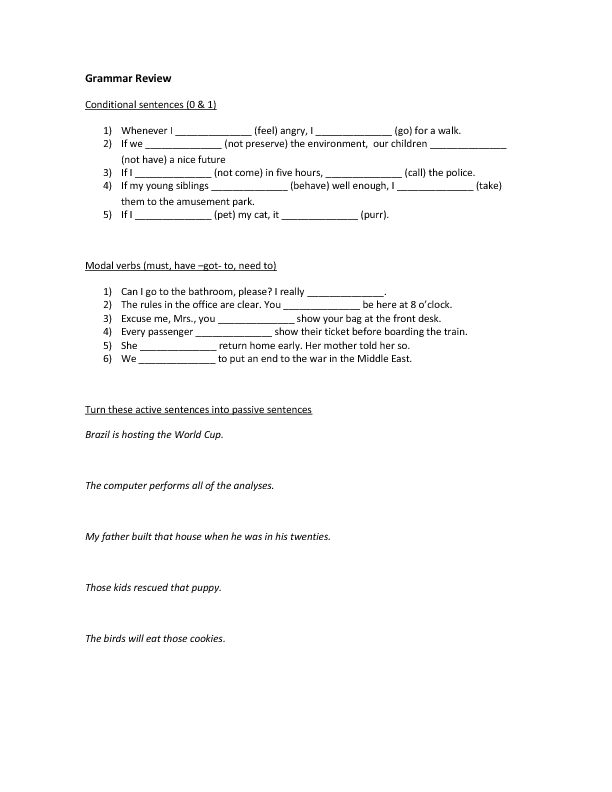
81 Free Must Worksheets
Must Not Have Or Must Have Not のギャラリー

Updated Measures On Traveling To Thailand From 1 November 21 Royal Thai Embassy Stockholm

Modal Verbs To Express Past Possibilities Lesson 26 English Grammar Youtube
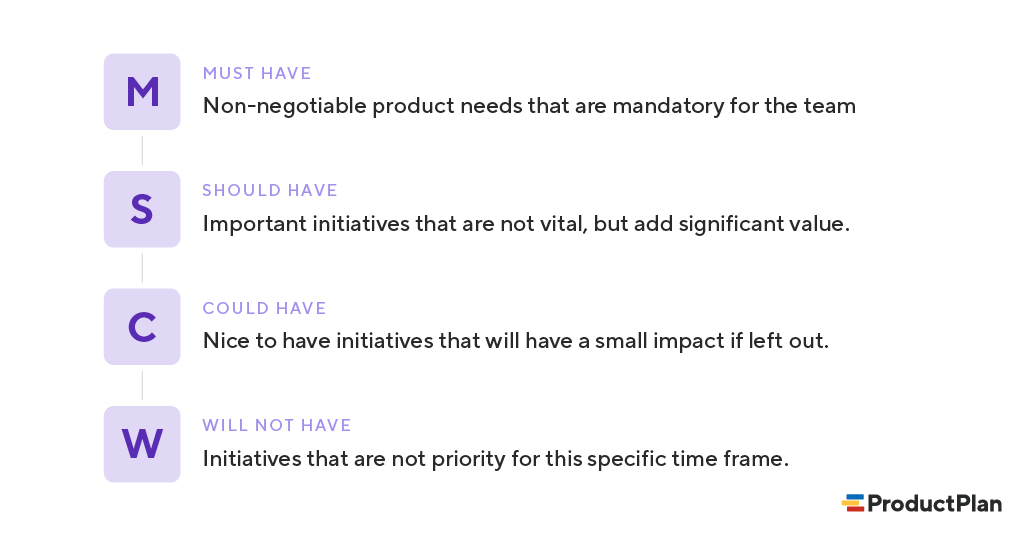
What Is Moscow Prioritization Overview Of The Moscow Method

The Difference Between Must Have To Shall Need And May Wall Street English

The Difference Between Must Have To Shall Need And May Wall Street English

Essential Care Of Critical Illness Must Not Be Forgotten In The Covid 19 Pandemic The Lancet
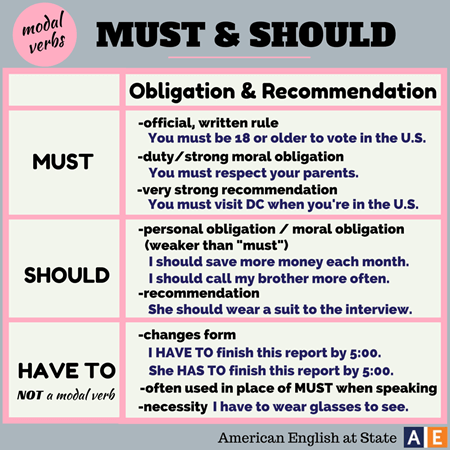
Modal Verbs Must Should And Have To English Learn Site
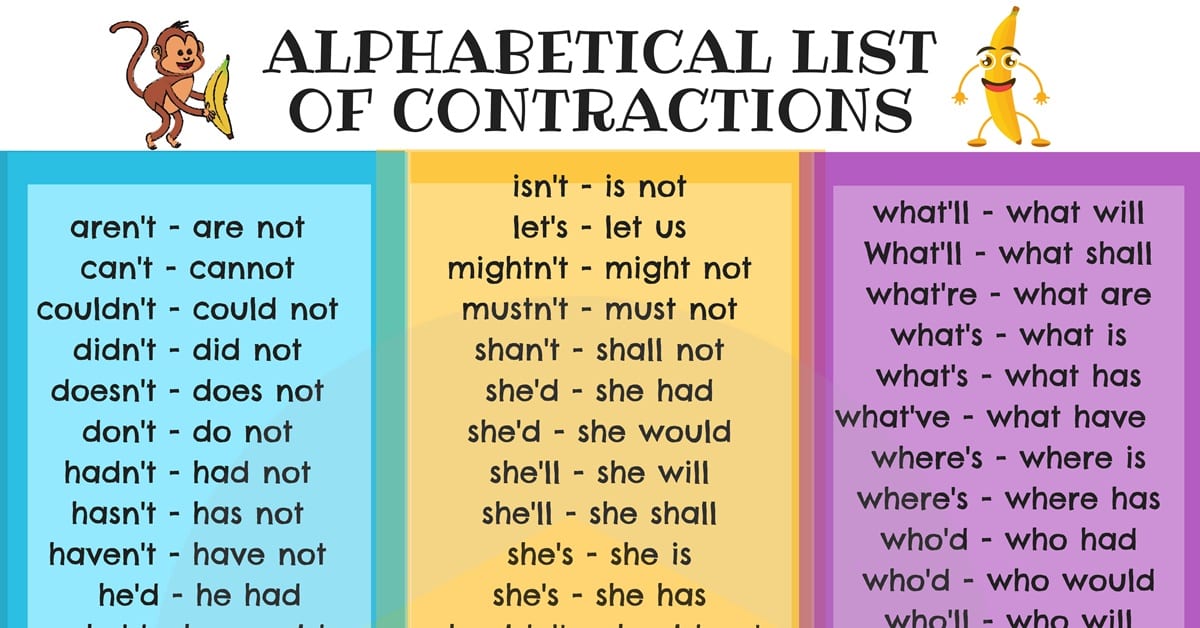
List Of Contractions Contraction Words Used In Writing And Speaking 7esl
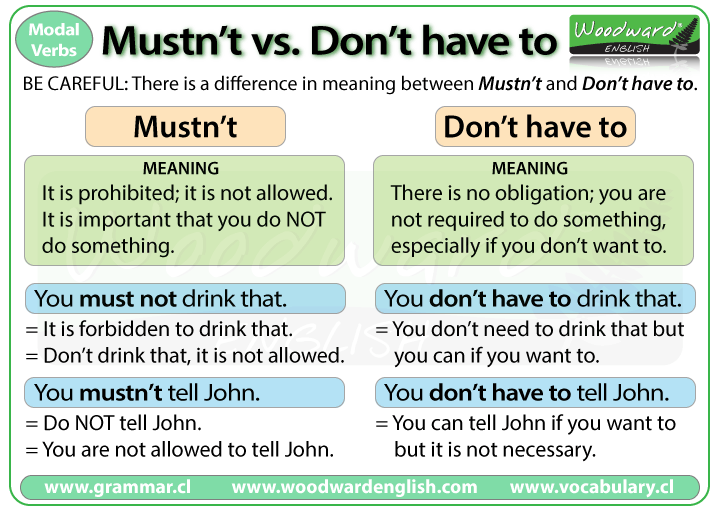
Must English Grammar

Modal Verbs Must Have To Can Could Should Mustn T Don T Have To Can T Couldn T Shouldn T Ppt Download

English For Beginners Must Vs Have To Must Not Vs Don T Have To Must Vs Have To Must Express Personal Obligation Express What The Speaker Thinks Is Necessary
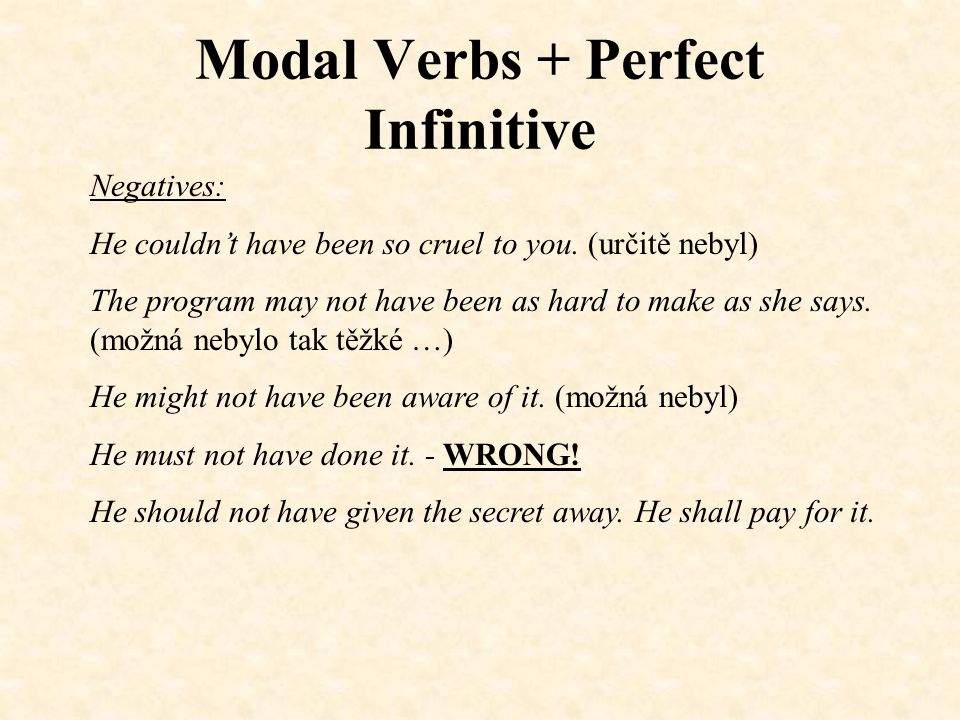
Modal Verbs Perfect Infinitive Ppt Video Online Download

Modal Verbs Can Must Mustn T Should Have To Worksheet
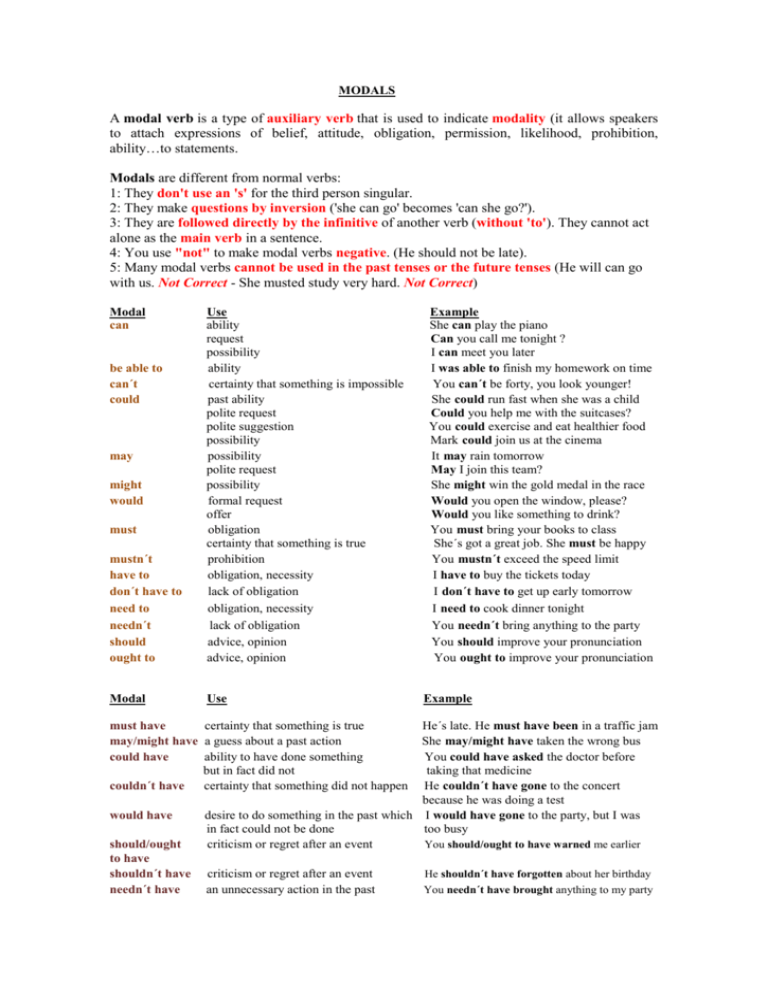
Modals A Modal Verb Is A Type Of Auxiliary Verb That Is Used To

Modal Verbs What Are Modal Verbs Special Verbs
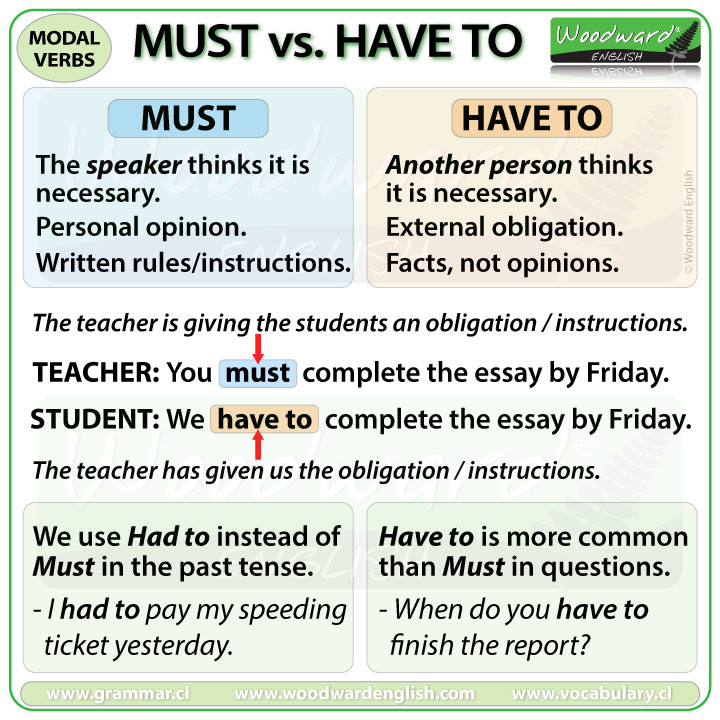
Must Vs Have To Woodward English
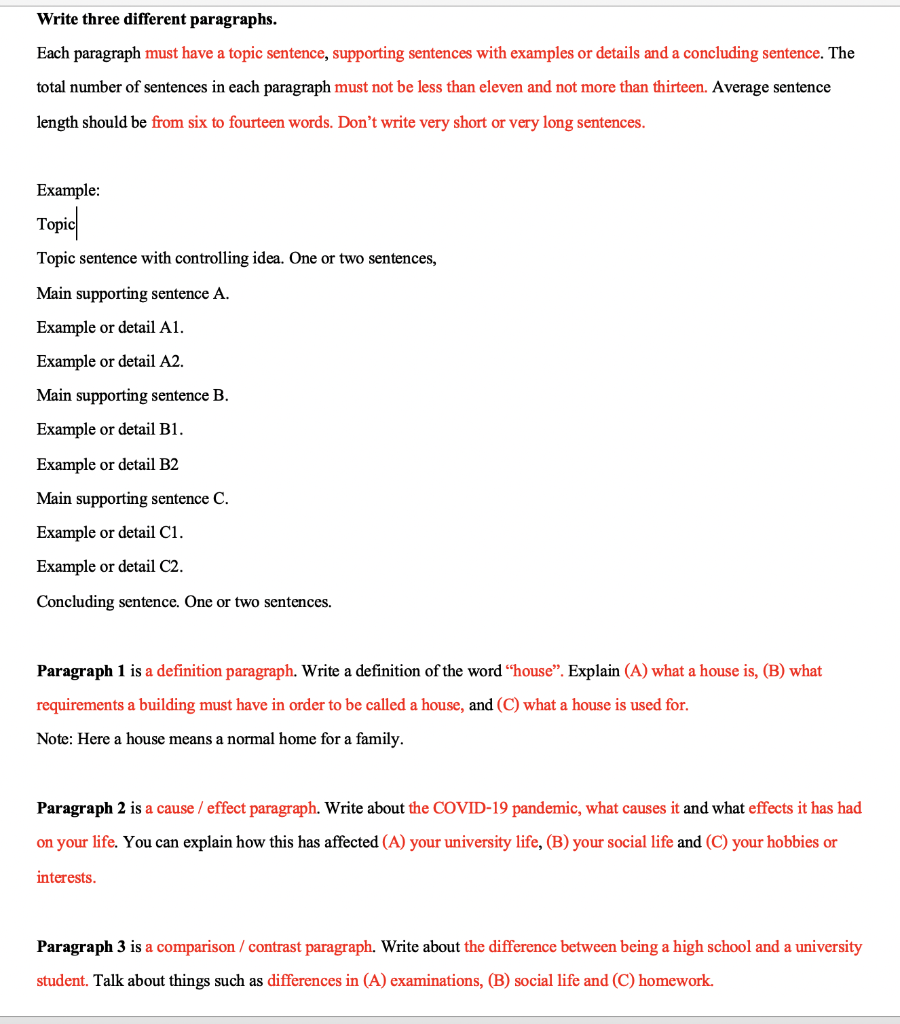
Solved Write Three Different Paragraphs Each Paragraph Must Chegg Com

Difference Between Have To And Must Difference Between

Must Mustn T Can Have Don T Have To English Esl Worksheets For Distance Learning And Physical Classrooms

To Express Obligation Must Mustn T Must Not Fourth Grade

Modal Verbs Grammar Review Raed Albanon University Of

Pin On Modal Verbs
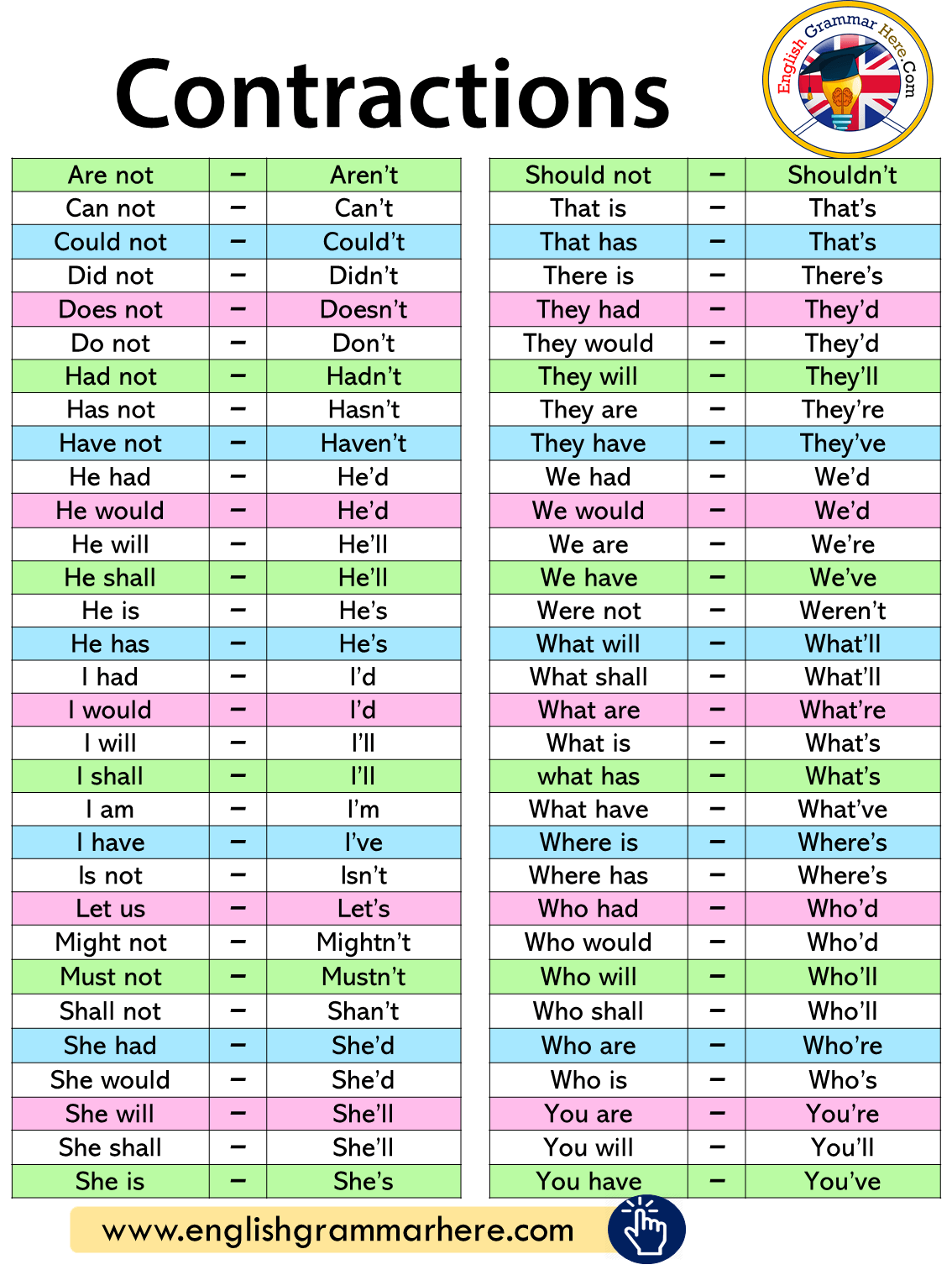
Detailed Contractions List In English English Grammar Here
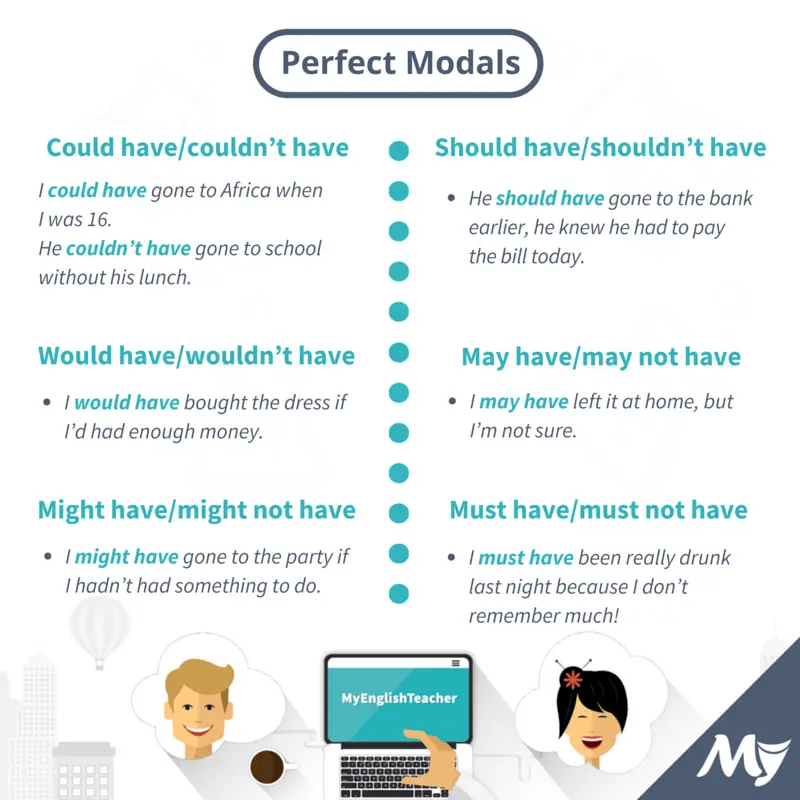
What Are Perfect Modals Their Meaning And Examples Myenglishteacher Eu Blog
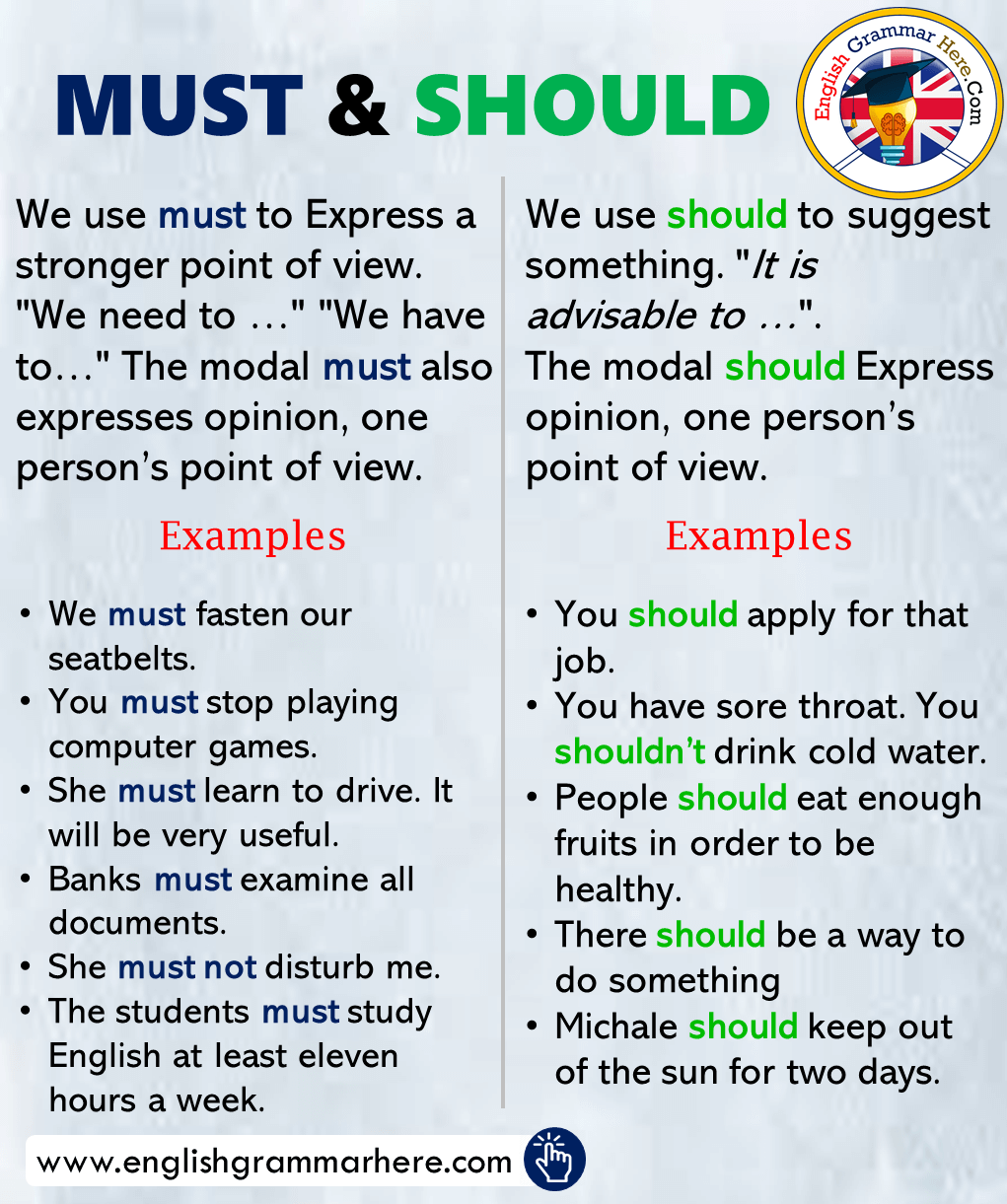
Using Must And Should Example Sentences English Grammar Here

Must Vs Have To What Is The Difference Youtube
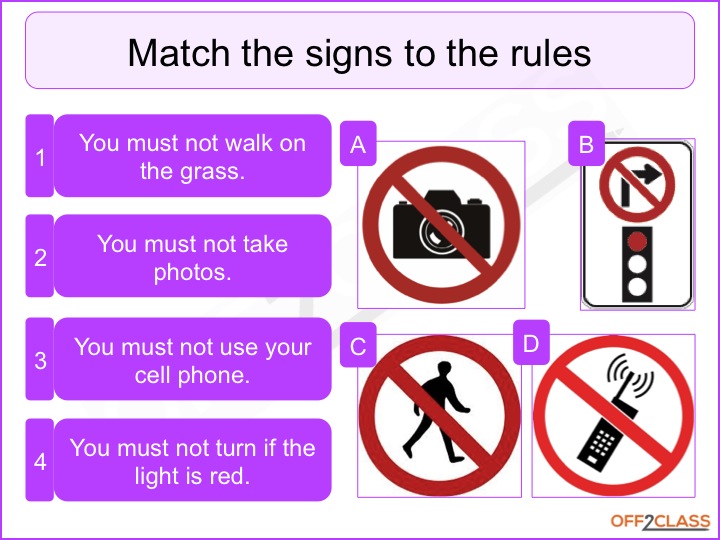
Teaching Must And Have To Necessity Modals Off2class

Modal Verbs Should Ought To Have To Y Must
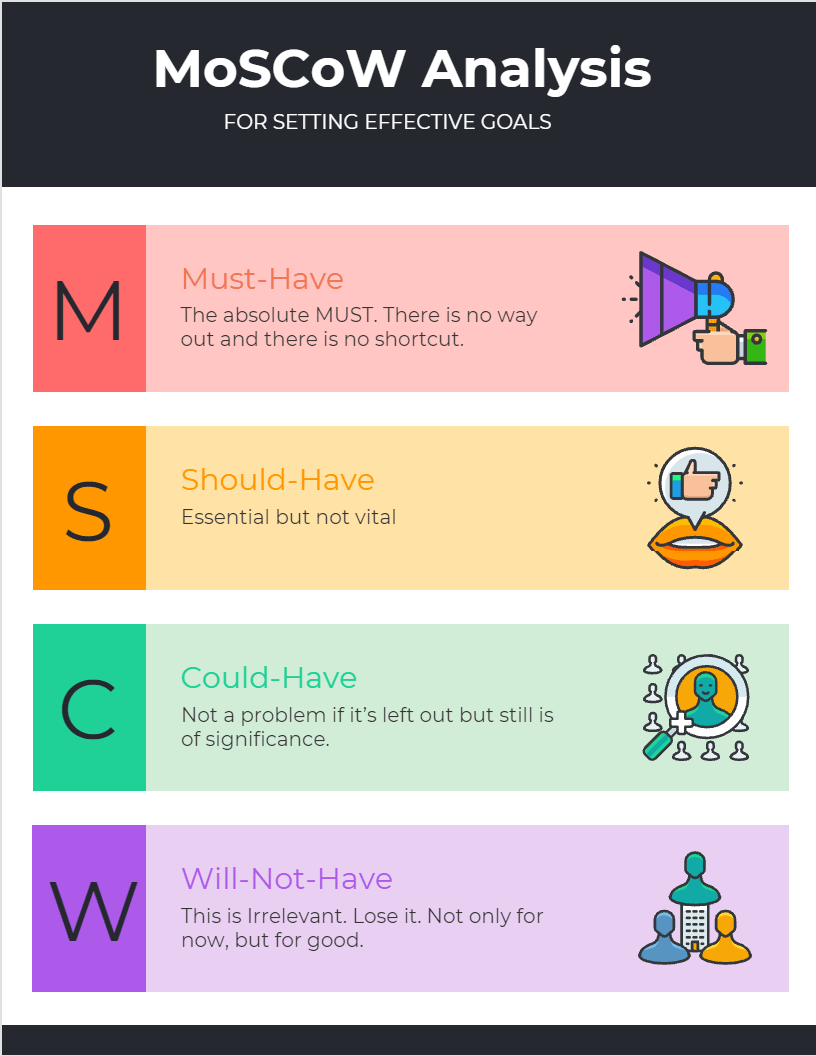
What Is Moscow Analysis And Moscow Method Projectcubicle

Test English Prepare For Your English Exam

Must Vs Have To Modal Verbs Difference Between Must And Have To Grammar Lesson Spokenenglishcorner
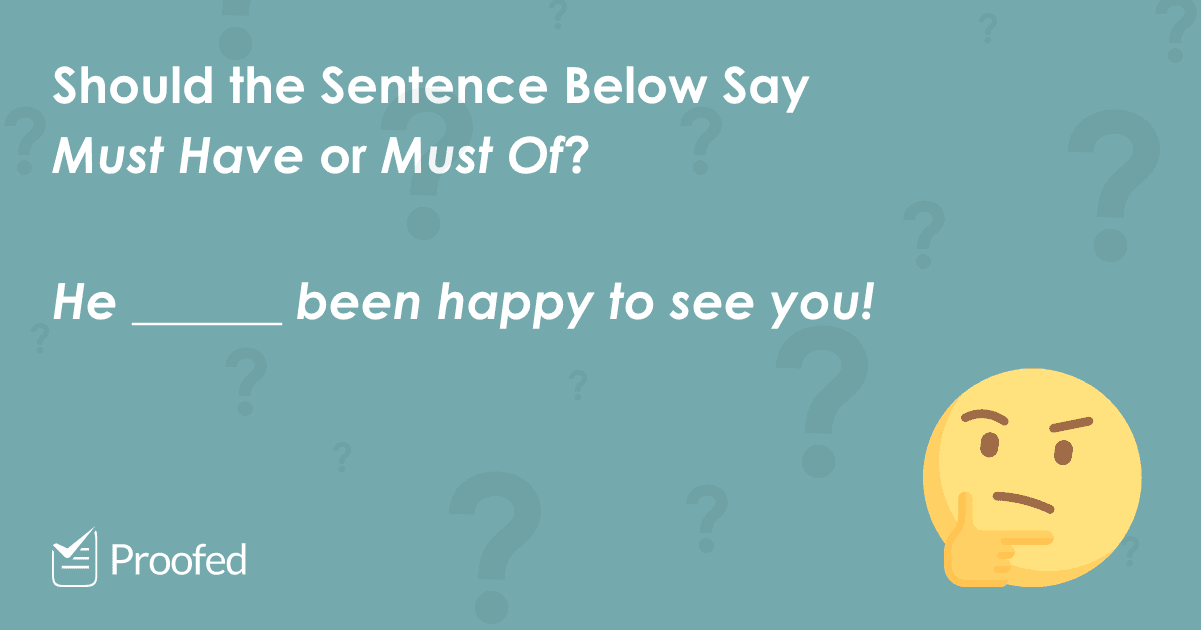
Grammar Tips Must Have Or Must Of Proofed S Writing Tips
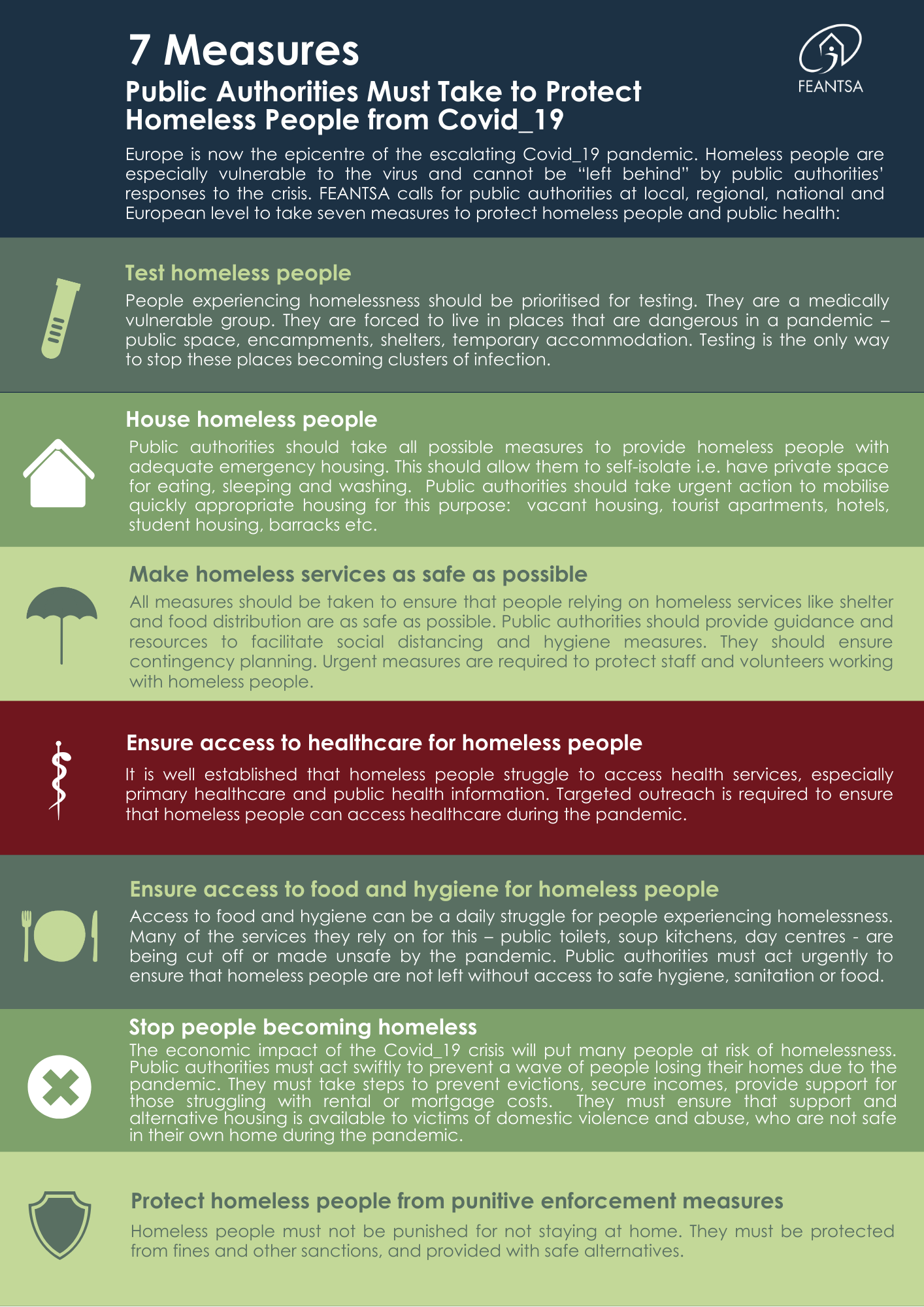
Seven Measures Authorities Must Take To Protect Homeless People From Covid

Modal Verbs What Are Modal Verbs Special Verbs

Modal Verbs For Obligations Negative And Questions Grammartop Com

Past Modal Verbs Explained In Pictures Break Into English
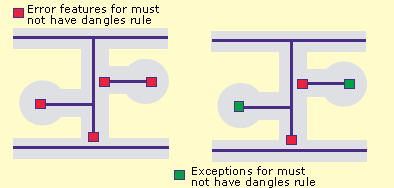
Geodatabase Arcobjects 10 4 Help For Java Arcgis For Desktop

Must And Must Not Worksheet

Mustn T Vs Don T Have To Woodward English

Must Mustn T Can Have Don T Have To English Esl Worksheets For Distance Learning And Physical Classrooms

Must Or Have To Worksheet

The Difference Between Must Have To Shall Need And May Wall Street English

Test English Prepare For Your English Exam

Pin On Modals In English

Modal Verbs Must Have To

Should Ought To Had Better Must Modals Verbs Of Advice Ppt Download

The Modals In Pictures Can Can T Can T Have Could Couldn T Could Have Couldn
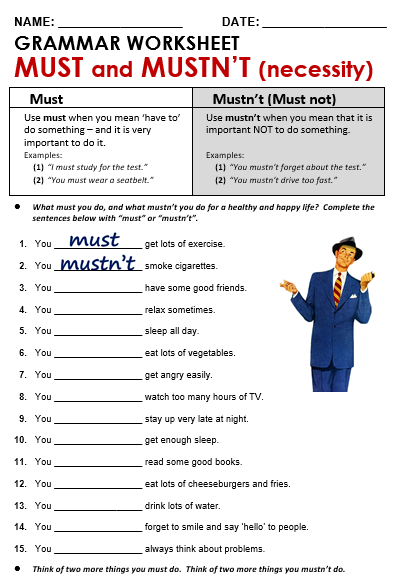
Must Necessity All Things Grammar
1
.png)
The Way We Address Homelessness In Europe Must Change In The Wake Of The Pandemic

To Express Obligation Must Mustn T Must Not Fourth Grade

Modal Verbs Must Have To

Test English Prepare For Your English Exam

Alfakassan Terms And Conditions
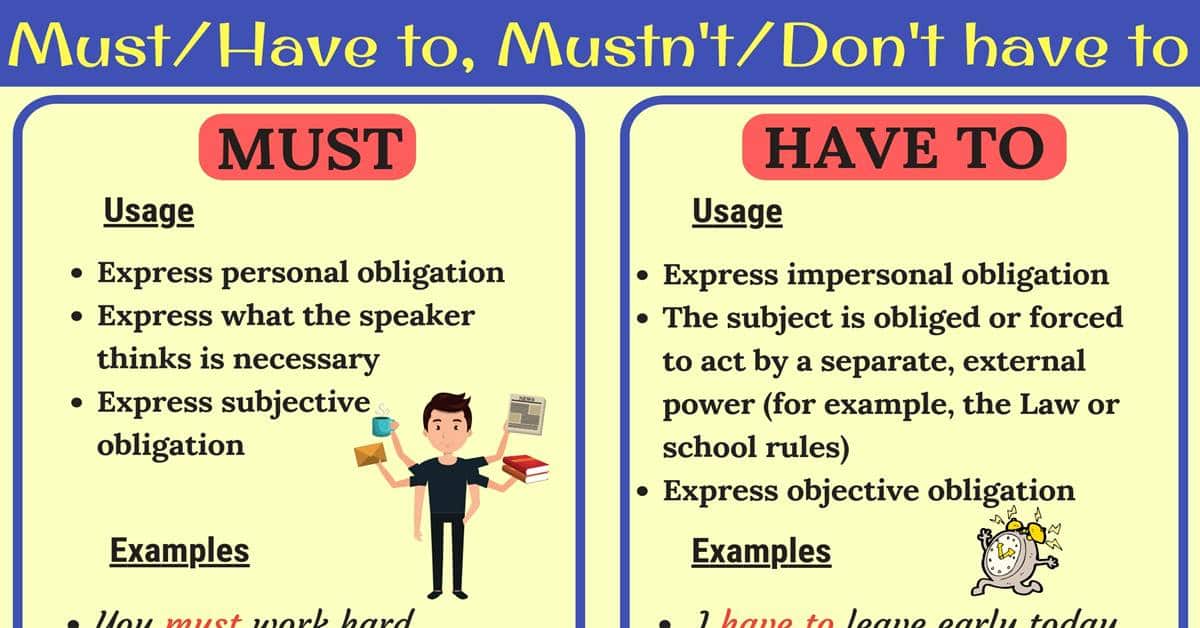
Must Vs Have To Must Not Vs Don T Have To 7esl
Web Pdx Edu
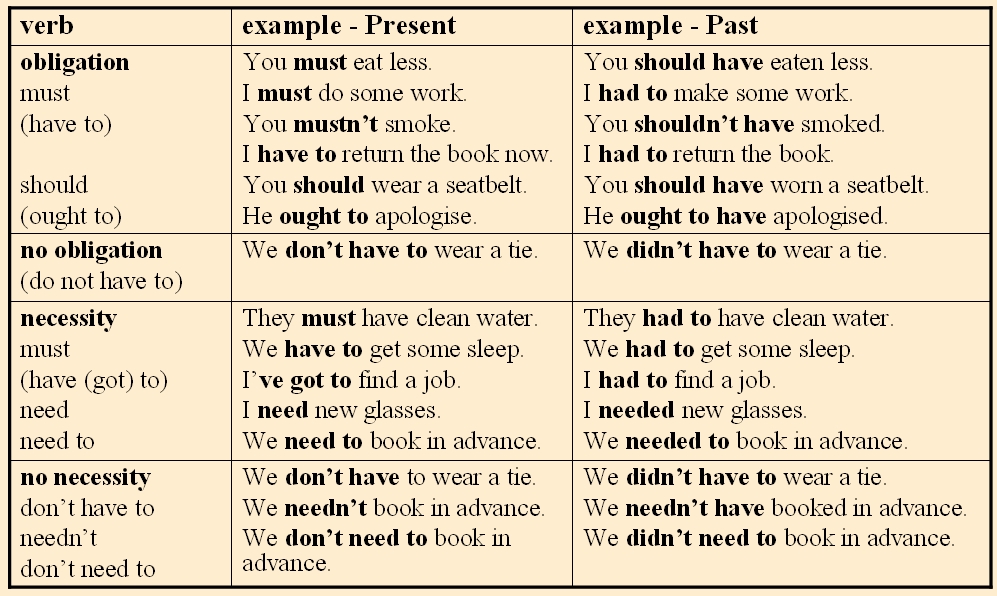
Obligation And Necessity Modal Verbs

English Grammar Must And Have To Mustn T And Don T Have To Eslbuzz Learning English
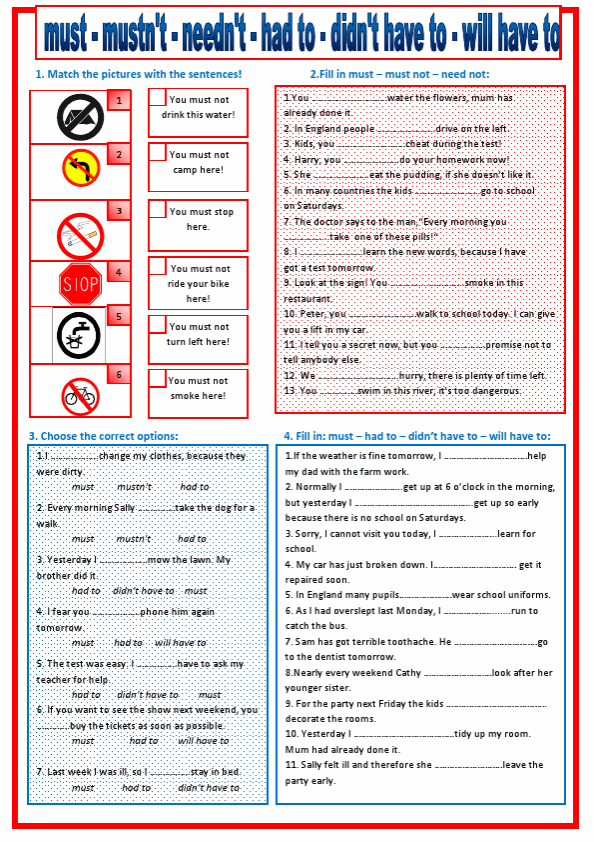
Must Have To Exercises Free Printable Must Have To Esl Worksheets Engworksheets
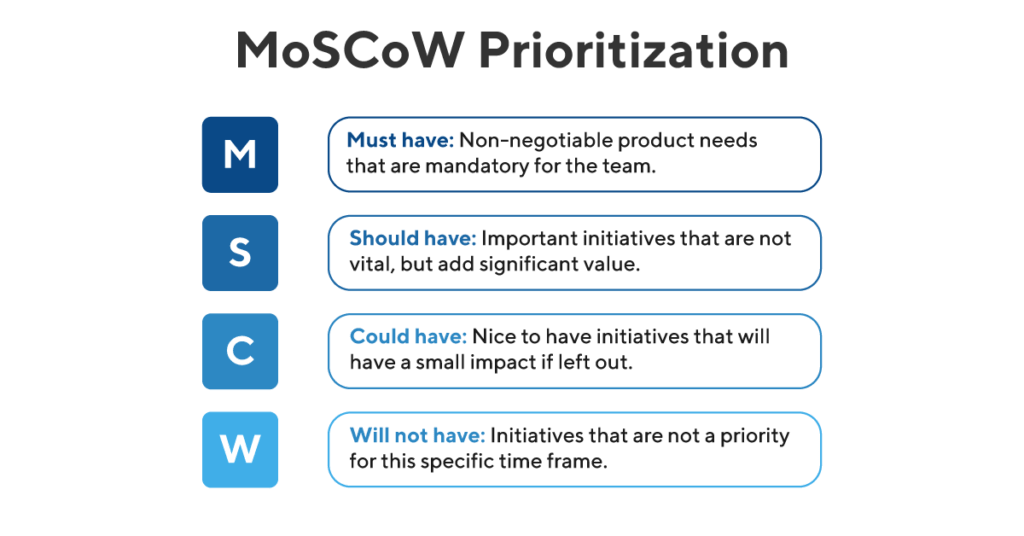
What Is Moscow Analysis And Moscow Method Projectcubicle

Must Have To Exercises

List Of Contractions In English Grammar Tips

Teaching Must And Have To Necessity Modals Off2class
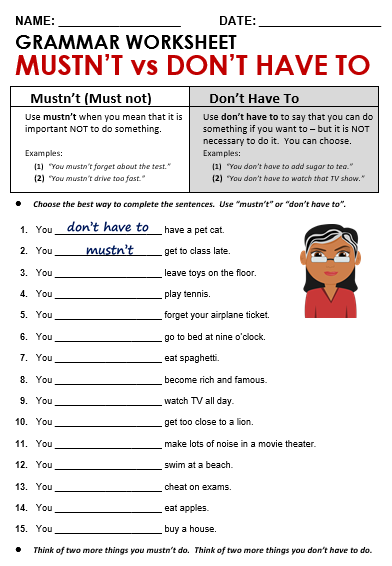
Must Necessity All Things Grammar

Should Must Have To Worksheet
1
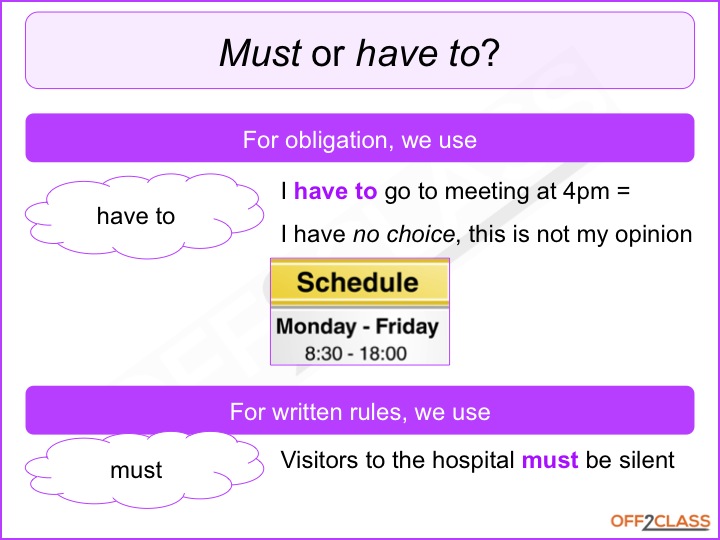
Teaching Must And Have To Necessity Modals Off2class

Chapter 10 Moscow Prioritisation The Dsdm Handbook Agile Business Consortium

Must And Have To Difference A Free Guide Post

American English At State Happy Monday We Don T Have To Keep Posting About Modal Verbs But We Really Want To Last Week We Posted About The Modal Verbs Must And Should
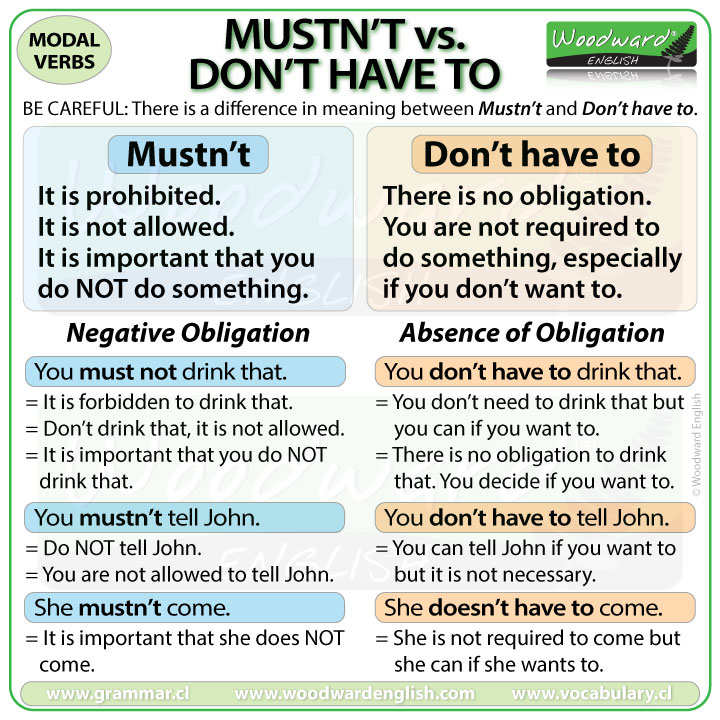
Mustn T Vs Don T Have To Woodward English

Modal Verbs Can Could May Might Must Must Not Needn T Ought To Shall Will Would Have To Ppt Download

Modal Verbs Flashcards Quizlet
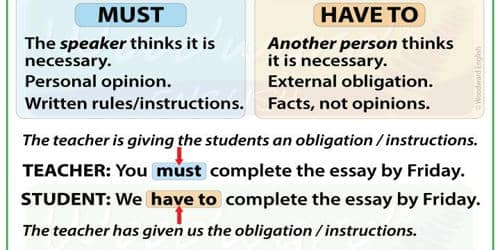
Difference Between Must And Have To Assignment Point

Teaching Must And Have To Necessity Modals Off2class
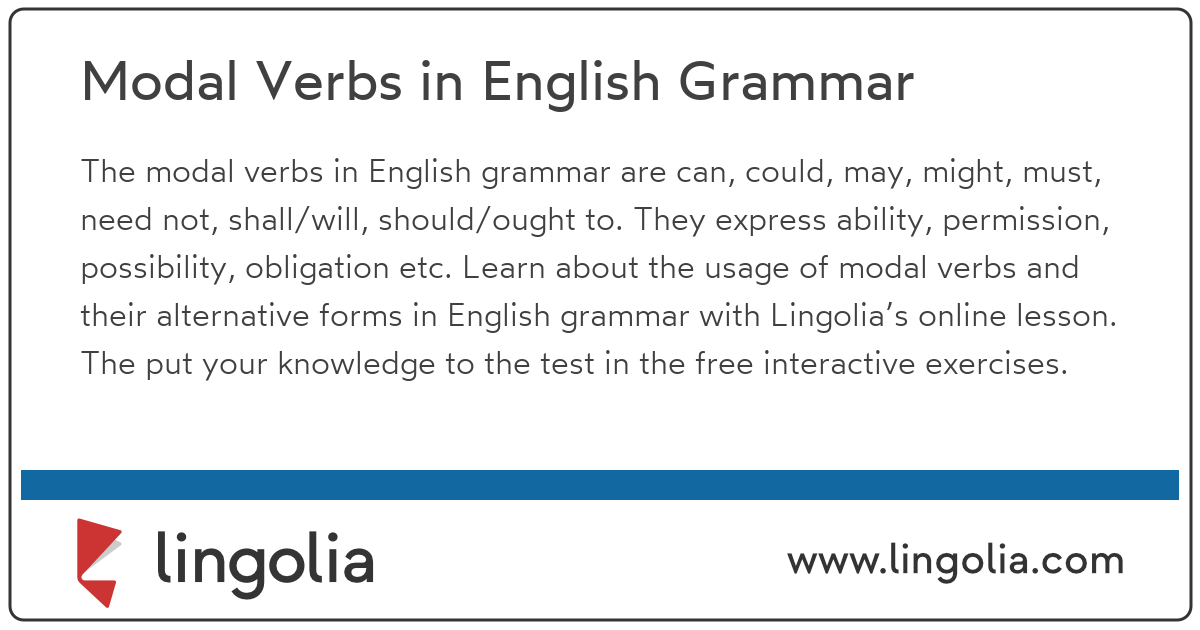
Modal Verbs In English Grammar
1

Calameo Blue Main Idea Graphic Organizer

Modal Verbs Grammar Review Raed Albanon University Of
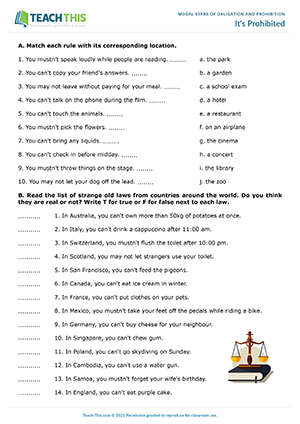
Modals Obligation Prohibition Esl Activities Games Worksheets
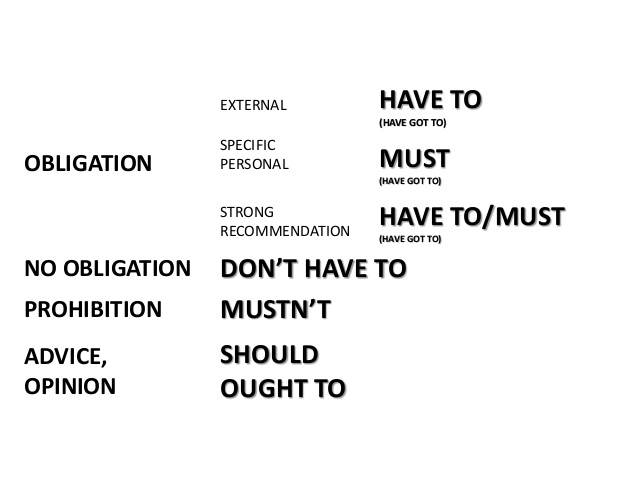
7a Advanced English Grammar Differences Between Must Have To Ought To Should Need Needn T Have

Ana S Esl Blog Modal Verbs For Eso 3 Students
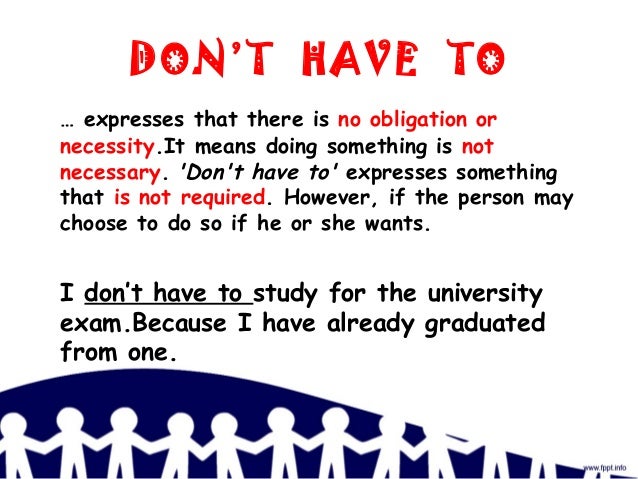
Must Mustn T Have To Don T Haveto

Must And Have To Archives Lessons For English
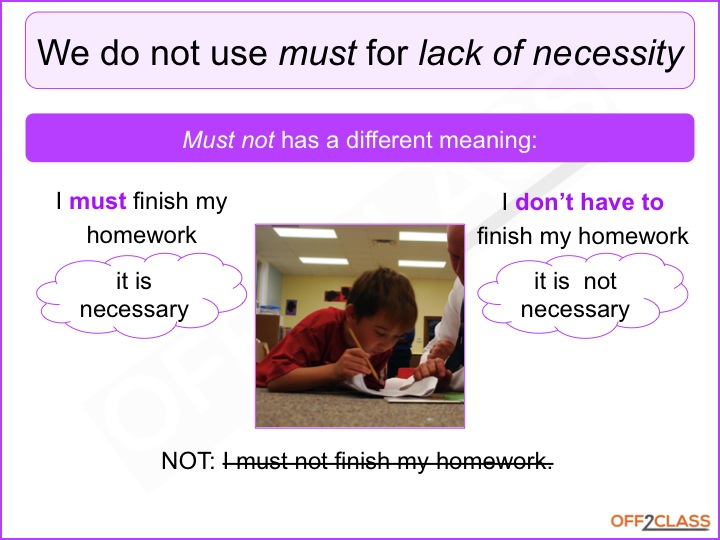
Teaching Must And Have To Necessity Modals Off2class

Mustn T And Don T Have To English Esl Worksheets For Distance Learning And Physical Classrooms

Must Have To Exercises

Test English Prepare For Your English Exam
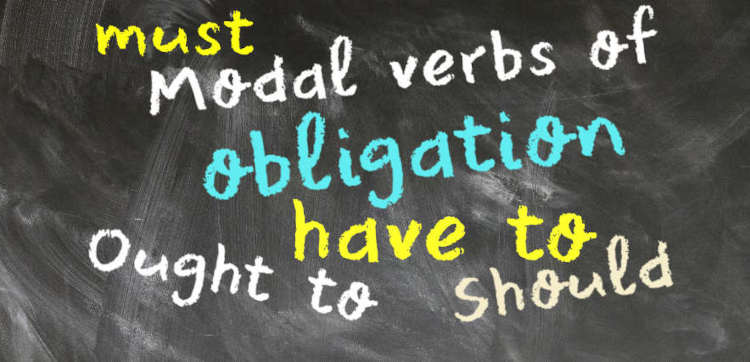
Modal Verbs Of Obligation Must Should Ought To

Modal Verbs Levels Of Certainty We Can Use Modal Verbs To Show Our By Pmcfb Medium

Wikipedia List Of English Contractions Wikipedia
Fadeibuoni Files Wordpress Com
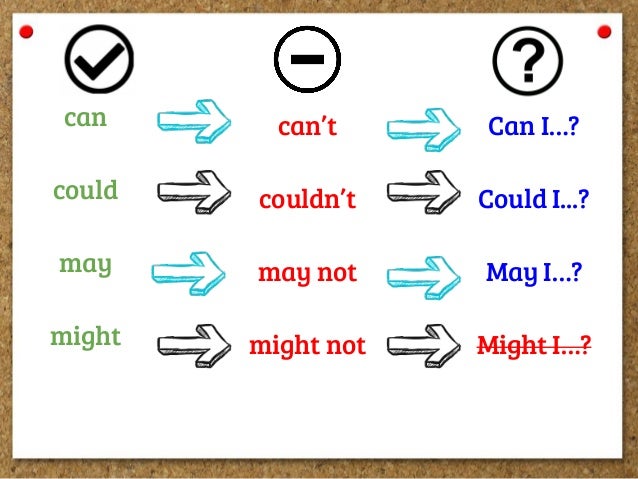
Modals Can Could May Might Should Have To Must

Modal Verbs Levels Of Certainty We Can Use Modal Verbs To Show Our By Pmcfb Medium
1

The Modals In Pictures Can Can T Can T Have Could Couldn T Could Have Couldn
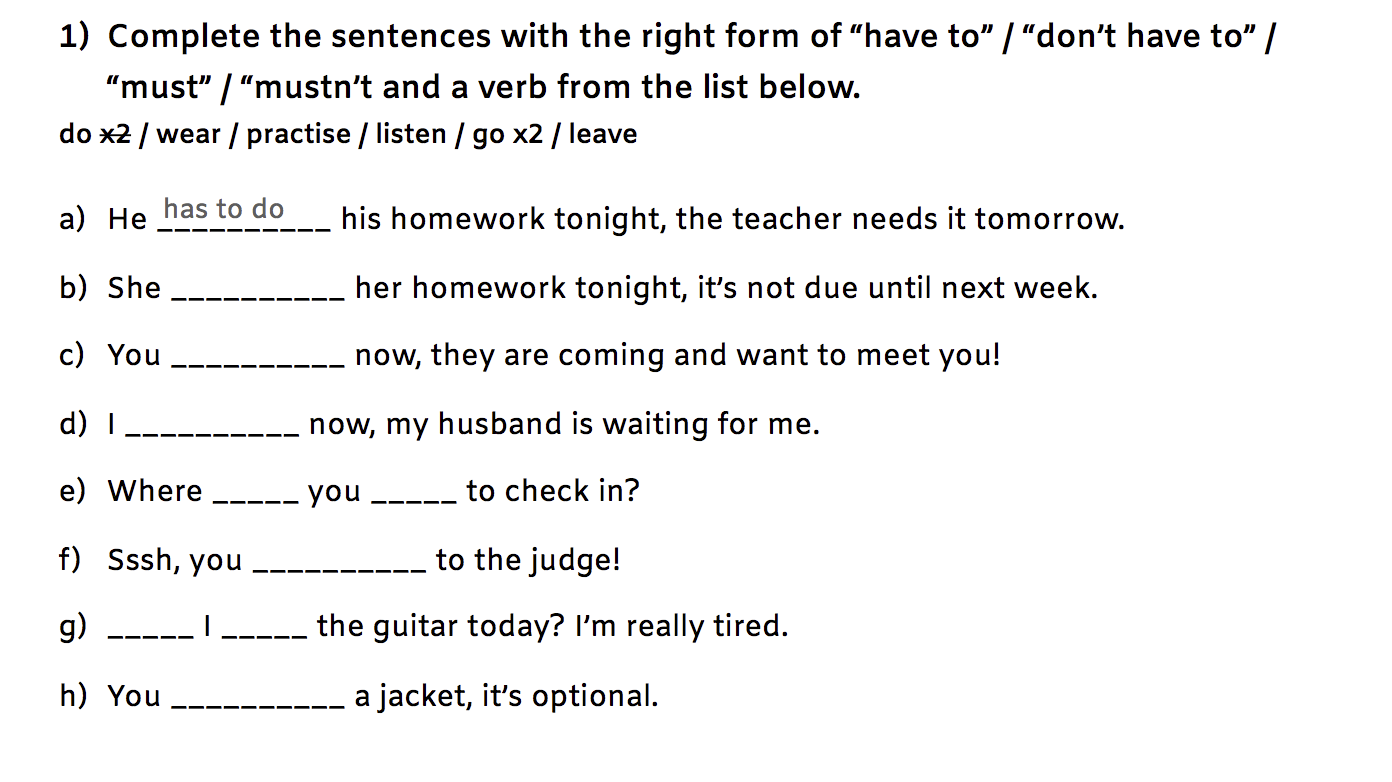
81 Free Must Worksheets

Teaching Must And Have To Necessity Modals Off2class
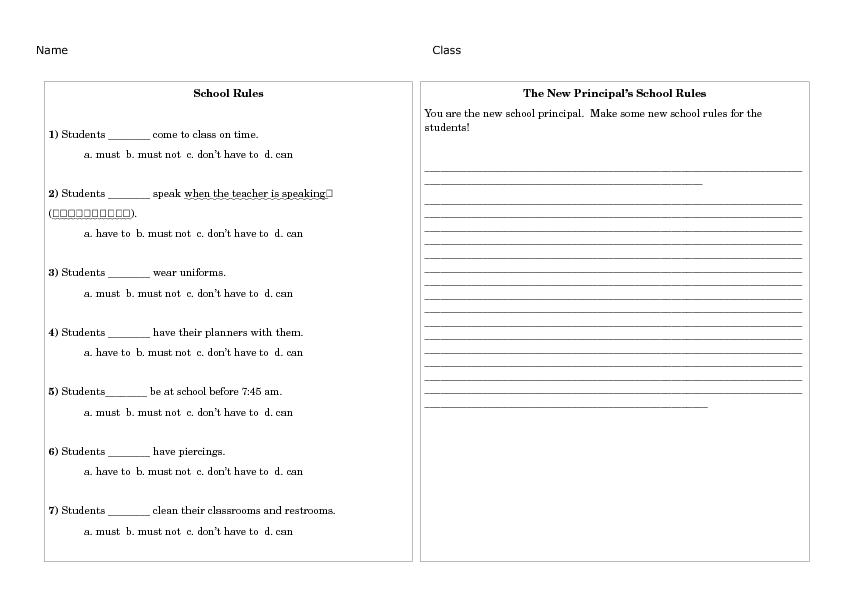
81 Free Must Worksheets

Mustn T Vs Don T Have To Woodward English

Pip 5 3 0 Release Notes Phenixid Support




